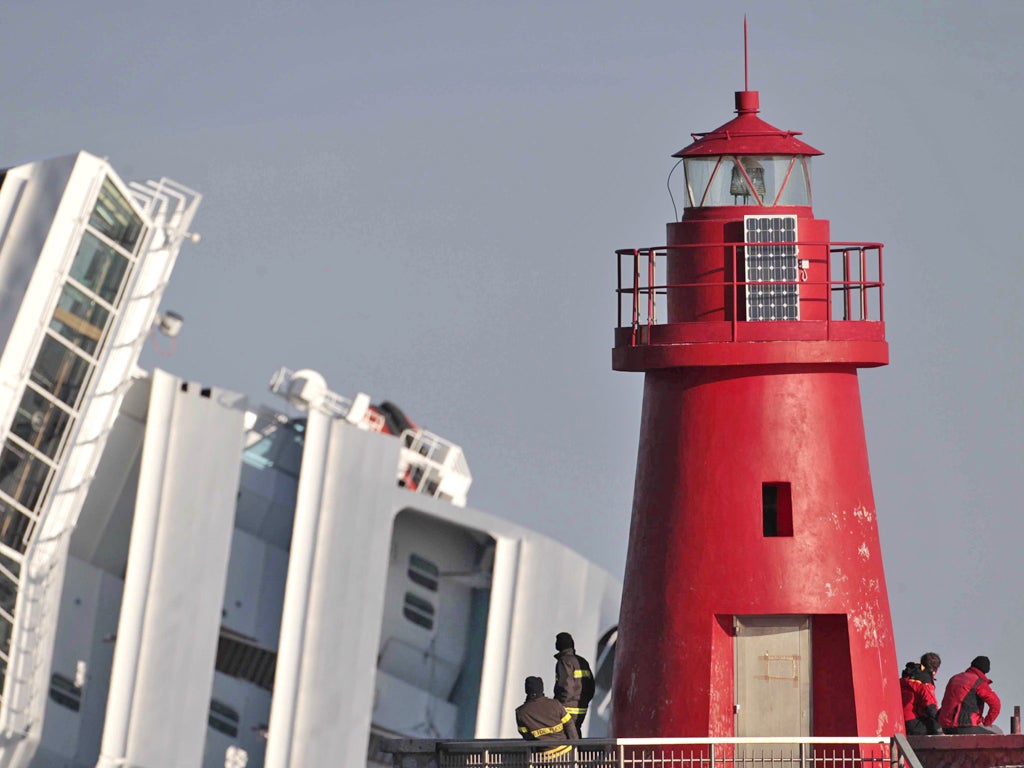Your support helps us to tell the story
From reproductive rights to climate change to Big Tech, The Independent is on the ground when the story is developing. Whether it's investigating the financials of Elon Musk's pro-Trump PAC or producing our latest documentary, 'The A Word', which shines a light on the American women fighting for reproductive rights, we know how important it is to parse out the facts from the messaging.
At such a critical moment in US history, we need reporters on the ground. Your donation allows us to keep sending journalists to speak to both sides of the story.
The Independent is trusted by Americans across the entire political spectrum. And unlike many other quality news outlets, we choose not to lock Americans out of our reporting and analysis with paywalls. We believe quality journalism should be available to everyone, paid for by those who can afford it.
Your support makes all the difference.Until last weekend, booking a Mediterranean cruise looked like one of the least risky activities any traveller could undertake. In light of the Costa Concordia cruise ship disaster, has that now changed?
On the face of it, this appalling accident reveals that despite a lifeboat full of safety regulations governing the operation of these vast pleasure ships, it apparently only took human error – or human arrogance – to bring about catastrophe. The emerging soap opera surrounding the activities of the Concordia's disgraced captain Francesco Schettino might arouse a degree of gruesome fascination, but concentrating on one man's alleged incompetence, or cowardice, should not obscure the need to take new industry-wide steps to avoid any repetition of this tragedy.
Aviation has a long history of awful accidents, and an equally long history of learning from them. Take a look at the UK's Civil Aviation Authority website (caa.co.uk). The statistics reveal a wealth of research into plane crashes, down to the age and gender of passengers correlated with the seats they were sitting in. The CAA works to ensure that air accidents become less likely and that, when they occur, the chance of survival is increased.
The sinking of a cruise ship is a mercifully rare occurrence, a fact that was emphasised with some force in the conference suite of a hotel in west London last Thursday. Even as the Concordia shifted uneasily on the rocks off the Tuscan island of Giglio, the global cruise industry had convened a press conference, rushing to its muster station to reassure the public.
Christine Duffy, President and CEO of the Cruise Lines International Association, spoke on behalf of 26 cruise lines. "Safety is the cruise industry's number one priority," she said. Cruise ships were "heavily regulated in compliance with the strict standards of the International Maritime Organisation [IMO]". She then called on the IMO to evaluate the disaster, to ensure that lessons are learnt.
The first of these, presumably, is that safety drills should always be carried out while still in port. Maritime regulations currently allow them to be undertaken within 24 hours of embarkation.
Of course, prevention is the key. On a passenger plane "cockpit resource management" is designed to encourage teamwork in making decisions that have potentially life-threatening implications. As Captain Bill Wright, Royal Caribbean International's Senior Vice President of Marine Operations, pointed out, a similar process exists on cruise ships. "Bridge resource management" means that deviation from an agreed course requires a "two-point check" with the captain's colleagues. Did this happen on the Costa Concordia? Presumably this will be one of the first questions addressed by any inquiry.
And what of the captain? It pained Vice Admiral Sir Alan Massey, CEO of the UK Maritime and Coastguard Agency, to reveal that there is "no basis in international law that the captain goes down with his ship, or is even the last to leave". Captain Wright, though, found it hard to see why a captain would abandon ship before his last passengers. That, he said, goes against "an unwritten rule or law of the sea". Some new rules and laws should help ensure that this accident is the last of its kind.
Do you have a travel issue? Email travel@independent.co.uk

Join our commenting forum
Join thought-provoking conversations, follow other Independent readers and see their replies
Comments